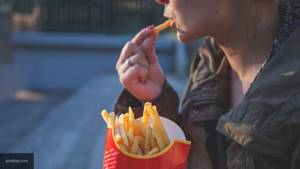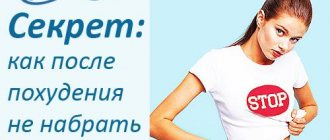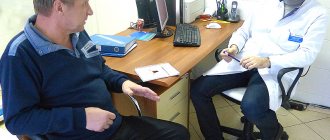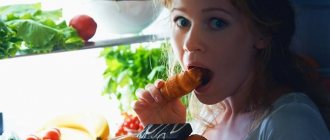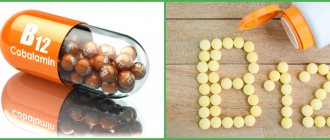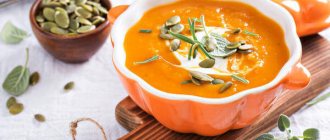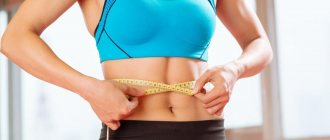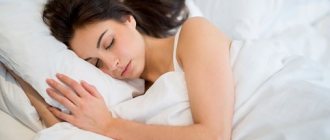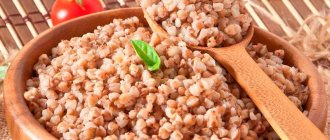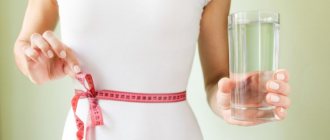Are you mine, Moysenko's slimming program?
I’ll say right away that it’s better for my dear thirty-year-old ironic peers to read something else. Fortunately, all books on weight loss written by nutritionists talk about one thing. Rimma Vasilievna Moisenko focuses on a slightly different target audience - women who still remember who Valentina Tolkunova and Tatyana Vedeneeva are. Personally, it took me a lot of patience to wade through the reviews of half-forgotten celebrities “from childhood.” But let's get to the point.
The book begins with lengthy discussions about self-love. Personally, I think that the value of the proverbial “love” is greatly exaggerated. “People who love”, as a rule, do not go on diets, and are indifferent to exercise. They, my dear little fans of self-improvement, are doing well enough. True, such individuals are found not in line at supermarkets, but mainly in remote Nepalese datsans. In short, if you have a very ironic attitude towards positive psychology in the spirit of Rhonda Byrne, it is better to start reading the book from the second part.
In the first one we learn the following:
- if you have low self-esteem, you are constantly worried about everything, and, in general, you live not for yourself, but as if “for that guy,” you will probably carry excess weight;
- people are divided into categories, and some sit... oh, sorry. The first are purposeful hunters for success in life. The second are “drama queens” or seekers of constant worship. Still others live by the principle “don’t believe, don’t be afraid, don’t ask.” The fourth simply do not live, but are embarrassed. Fifth people are too active, never stop, and throw out their energy in all directions;
- The first category will help you lose weight well by realizing that success depends on a slim figure. A program that suits them is a “personal project” with clear goals, deadlines, an exercise and nutrition plan. But usually they don’t have the time and energy to monitor all this goodness, so they should hire a nutritionist, persuade their husband or wife to act as a “diet secretary” and make sure that there is always a freshly cooked chicken breast in the container, and in the pocket bags - apple;
- the second category of citizens needs spectators. In modern society, by the way, drama queens are universally disliked. And they become such because they are sincerely convinced that the whole world is very interested in knowing about the fluctuations of their precious weight. A blog, or even better, a video blog plus constant support from loved ones will help them;
- the third category must become seriously interested in Buddhist philosophy, listen to all the Lama’s lectures, read a bunch of books and finally realize that it is useless to fight life, you can either participate in it, or get rid of it in full for the inconsistency of character. And they should also believe that people are not so bad, and those around you, in general, don’t care, oh, sorry, those around you will support all your weight loss efforts. And as a practical recommendation, these people should learn to relieve stress in a non-food way. In the book, such people are suggested to meditate, although from personal experience, it seems to me that something like weight training or boxing works more effectively on them;
- The fourth category is to gradually get out of the “case” - set small, not scary goals for yourself, and do something other than endlessly watching TV series or reading novels and blogs. In general, a gradual “involvement in life” will help them;
- the fifth category must realize that it is possible to “burn” only with a healthy heart, and if they do not improve their own condition in the near future, it will be impossible to lead the same altruistic lifestyle
[back to contents]
Consultation with Rimma Vasilievna Moysenko
Practical work experience - 38 years. Over all these years, he has been working on solving health problems, normalizing weight, obesity and metabolic syndrome, integrative personalized medicine, and anti-aging programs.
Has special skills in systemic health management and effective prevention. Conducts anti-aging therapy according to indications - treatment aimed at slowing down the aging process and preventing diseases that develop as age increases, both physiological and premature; solving problems of prolonging active longevity (identifying factors predisposing to various diseases, adjusting lifestyle and nutrition, maintaining normal hormonal balance); improvement of all indicators of quality of life (physical, sexual, psychological, mental).
Helps in maintaining ability to work, increasing the usual level of quality of life, maintaining interest in life, attractive appearance, preventing and treating age-associated diseases.
Prepares the body of married couples for a normal healthy pregnancy.
He is engaged in the treatment of Covid-19 and Post-Covid syndrome.
The cost of consultation is 5000 rubles/1 hour.
Education:
MMI im.
Sechenova I.M. - specialty General Medicine. Ministry of Health of the Russian Federation State Medical University of Moscow, internship in the specialty of Internal Medicine, qualification - therapist. MMI named after N.A. Sechenov - residency in cardiac resuscitation, qualification - cardiac resuscitation specialist. Academic degree: Candidate of Medical Sciences. 2005 - RMAPO Roszdrav - professional retraining in the specialty "Dietetics" - 576 hours. 2009 - Institute of Functional Medicine (IFM.USA) - advanced training in the course: Fundamentals of Functional Medicine in the treatment of obesity and metabolic syndrome - 72 hours 2011, 2017 - advanced training in dietetics to the present. Since 2010, member of the Russian Union of Nutritionists, Dieticians and Food Industry Specialists.” Member of the International Association for the Study of Obesity (IASO) Member of the Institute of Functional Medicine (IFM, USA) 2001 - RUDN, advanced training in the specialty of Physiotherapy 2006 - MGMSU - professional retraining in the specialty "Physiotherapy in the system of medical rehabilitation" 2011, 2021 - advanced training in specialty Physiotherapy in the system of medical rehabilitation to the present day. 2000 – RUDN University - advanced training course - Mesotherapy in aesthetic medicine - 72 hours. 2002 GIUV MO RF-dermatology with the basics of mesotherapy - 72 hours 2002 -Universite Victor Segalen Bordeaux (France), Course of international mesotherapy in medical and aesthetic medicine - 72 hours. 2003 – Rond point des Arcades (France) International course on therapeutic mesotherapy in neurology and traumatology - 72 hours. 2004 - Agora Associazione per L,aggiomamento medico (Italy) Advanced course of therapeutic mesotherapy for professionals - 72 hours. 2004-2009 - intensive international training courses on the topic; the use of mesotherapy in cosmetology and aesthetic medicine. Since 2004, he has been a member of the Russian and International Society of Mesotherapists. 2005 - State Research Institute of Transplantology and Artificial Organs of the Ministry of Defense of the Russian Federation - Transplantology of stem cells and fibroblasts in the clinic of aesthetic medicine - 72 hours. 2006 - RUDN University State University of Higher Professional Education - advanced training in the course Organic preparations and mesotherapy in therapy and cosmetology. 2007 - Deutsche Gesellschhaft Fur - advanced training in the course Organic preparations Thymus Therapie eV-144 hours Since 2007, he has been a member of the German-French Society for Thymus Therapy. 2012 RUDN University - advanced training on the topic “Clinical lymphology and endoecology under the guidance of Professor Yu.M. Levin - 144 hours. 2021 - IDPO "Institute of Plastic Surgery and Fundamental Cosmetology" in the Aesthetic Endocrinology program - advanced training - 18 hours. 2019 - ANODPO Academy of Additional Education - professional retraining in the program - Therapy - with the defense of certification work on the topic: "Policlinic therapy" - 576 hours. 2020 - LLC "International Institute of Integral Preventive and Anti-Aging Medicine PreventAge" - additional professional training on the topic: "Integral preventive and anti-aging medicine." - 250 hours. From 2021 - LLC "International Institute of Integral Preventive and Anti-Aging Medicine PreventAge" - additional professional training on the topic: "School of Precision Metabolomics Medicine. Since 2004, he has his own clinic for Preventive and Aesthetic Medicine “RIMMARITA”, and is its permanent director. Author of books on dietetics and anti-aging “My Slimness Program”, “False Your Weight”. Author of his own patented method “Method of normalization and long-term weight retention.” Author and director of his own patented health program “False Your Weight” of tours in Russian cities. He is a regular expert on nutrition, anti-aging, dermatocosmetology, and physiotherapy in professional journals, the author of monographs on cardiology, cardiac resuscitation and anti-aging therapy in medical publications, popular science and popular magazines, and is a regular author of columns in several magazines on dietetics and clinical nutrition, health and beauty. For many years he has been a permanent expert on nutrition and anti-aging on Russian television, radio, and Internet channels. A regular participant and speaker at international and national conferences and congresses on nutrition, anti-aging therapy, aesthetic medicine, she has more than 100 professional diplomas and certificates in her profession.
Awards and titles:
Winner of the “Profession-Life” award. Awarded the medal of the Order “For Professional and Business Reputation”. Winner of the Gold Medal “For service to people and scientific foresight.” Person of Russia 2008, 2010.
Actually, the diet of Rimma Moisenko
Here we go again! Yes, not again, but again. Rimma Vasilievna offers you almost the same thing as any nutritionist, or trainer, or even a newfangled healthy lifestyle guru:
- To lose weight, you should choose a relatively calm and time-free period of life. The diet is better tolerated in the first half of the menstrual cycle, on the waning moon and when there is no need to overexert yourself at work and at home;
- Before you go on the Moisenko diet itself, you need to take a 10-day detox course. You have to give up coffee, refined carbohydrates, alcohol, as well as meat and fish. Eat vegetables, 1-2 fruits and a serving of grains per day. Be sure to drink 2 liters of clean water; weak tea, vegetable broths and herbal decoctions are also allowed;
- then you should move on to the “I’m losing weight” microcycle - calculate your daily calorie consumption using any online calculator, subtract 300-600 from this figure, and plan a classic fractional diet. Avoid sugar, white bread, white pasta, white rice, everything fried, processed foods and canned food. What remains is the “classic diet” - 500-700 g of vegetables, 100-200 g of fruits or berries, 100 g of meat or fish, 100 g of any low-GI porridge, and 100 g of cottage cheese or yogurt. We divide all this splendor into 250 g portions and don’t dare eat more in volume. We exist on such a meager diet for no more than 2 weeks, then we go to “support” for a week or two;
- in the “I’m not gaining weight” microcycle, you should equalize your calorie intake with your expenditure; you can sometimes allow yourself your favorite foods, but do not increase portions and do not change the fractional diet. Additionally (what a joy!) you need to carry out 2 fasting days a week. Choose from the “classic” days - kefir, cottage cheese, protein, vegetable, or, if tolerated well, apple days. Unloading is the cornerstone of the Moisenko system, this doctor is sure that it is wildly useful and fits into almost any daily routine. Personally, however, I know 3 living people who have been doing 2 fasting days a week for many years. Two of them, by the way, are overweight. The irony is appropriate - science has long proven that your weight will depend not on how many fasting sessions you do, but on how many times you overeat during the weight maintenance period. In general, here everyone chooses for themselves - for some it’s easier to swing in the gym 3 times a day and forget how to eat with a bucket once and for all, and for others it’s easier to chew dry cottage cheese 2 times a week.
So, the Moisenko system is nothing more than our old friend “fractional low-calorie meals” for weight loss. And yes, it is very effective and suitable for everyone, at least for all those who do not practice strength and high-intensity training.
Elena Selivanova
Recommended dietary intake
Of course, I will not retell the entire book; I will only briefly outline the essence of the dietary nutrition recommended by the author.
At its core, this diet is a new interpretation of the well-known basics of a properly balanced diet. Rimma Vasilievna recommends building your diet from the following products:
- lean meat (chicken, turkey, rabbit, veal);
- low-fat sea fish (hake, pollock, cod);
- fermented milk products (natural yoghurts, kefir, cottage cheese, cheese);
- porridge (buckwheat, oatmeal, mixed cereal);
- vegetable soups and broths;
- vegetables and fruits in large quantities in various culinary preparations, including salads and fresh juices.
Particular attention should be paid to the drinking regime. Water in our body makes up 80% of our weight, which means that this part also needs to be maintained in proper condition. For good health, it is recommended to drink at least 2-2.5 liters of water per day.
To correctly calculate the required amount of clean water, which is needed for the full functioning of the whole body, you do not need to have an accountant education,
you need to proceed from the common proportion of 30 ml per 1 kg of human weight. But we will talk about water in other articles.
More than half the volume of liquid must be drunk in the first half of the day to start the drainage function of the lymphatic system and not provoke the formation of edema. Immediately after waking up, it is recommended to drink 250 ml of water to cleanse the gastrointestinal tract of toxins.
The following foods should be excluded from your diet:
- salt;
- sugar and all products containing it;
- smoked products;
- fatty fish and meats;
- canned foods;
- fast food;
- chocolate and confectionery;
- carbonated drinks;
- alcohol.
Where does it come from?
Cellulite is a change in the structure of adipose tissue, due to which the skin, instead of smooth, looks lumpy, uneven, and resembles an orange peel. It happens not only to those who suffer from excess weight, but also to slender ladies. There are many reasons for this, and they are much more serious than fried potatoes at night.
“Cellulite is the price to pay for being women! This is a violation of the outflow of fluids from the intercellular spaces of subcutaneous fat. And it is connected with various reasons,” says Rimma Vasilievna.
Not everyone’s metabolic processes in the body are ideal, she notes. And any imbalance leads to greater accumulation of fluid in the intercellular space. This can also lead to visible and invisible cellulite, which in turn depends on the elasticity of the skin.
“You shouldn’t approach the causes of cellulite one-sidedly. We need to understand the reasons. Look at the state of the thyroid gland, the phase of the menstrual cycle (the second is characterized by the accumulation of cell contents, fluid retention in the body). On the state of venous and lymphatic outflow: if there is a congenital feature (impaired venous outflow), then there may also be an accumulation of fluid, which contributes to the formation of cellulite,” the interlocutor emphasizes.
Even the health of a girl’s back affects the appearance of “orange peel”: very often beauties with a classic S-shaped curve have it. Therefore, having taken up the task of getting rid of the ill-fated lumps, it is worth visiting an osteopath, and also checking the condition of the lumbosacral spine.

Another important factor is water-salt imbalance. This happens if the body does not absorb vitamins and nutrients from food.
“And it doesn’t digest because the food itself may be undiversified, incorrect, and high in calories. This is any food that is produced in our industry - bread, some milk, in a word, everything that stores offer us. The food that is made by industrialists is the one that does not grow in the field, is not created by nature, not vegetables, fruits, meat, fish, poultry, but buns, sausages, canned food. Most of the food is empty. There are no vitamins and microelements. Moreover, if you used to eat such food, and then began to eat properly at some stage, cellulite will persist!” - says Rimma Vasilievna.
